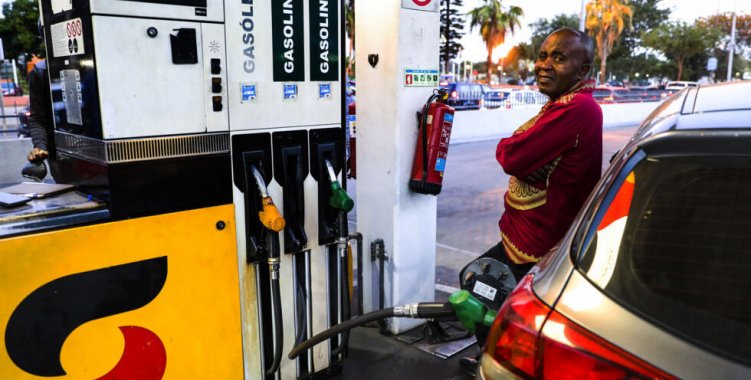The price of diesel rose on Monday to 300 kwanzas per liter, from the previous 200 kwanzas, an increase of 50 percent.
Speaking to Lusa, the president of the Association of Road Freight Transporters (Atroma), António Gavião Neto, expressed surprise at the news, despite the fact that a readjustment in the price of diesel was expected.
António Neto said that the costs will be passed on to the end consumer, who will be the most affected by the measure.
"There is no doubt that there will always be changes in the financial program already planned by the companies' management, which will cause a reengineering in the accounting sector of the associated companies (...), but it will not have a very glaring impact on our cash flow, because it is a cost that will be transferred to the end consumer", he said.
The manager stressed that this measure will have implications on the cost of living, making the basic food basket more expensive.
"These are the implications it will have in the future, if it hasn't started today", said Antonio Neto, considering the 50 percent increase in the price of diesel to be "very negative".
"If we were talking about 10 percent or 5 percent, perhaps it wouldn't be a big deal, but 50 percent is a very high percentage," he added, highlighting that diesel is the fuel most consumed by Angolan industries.
The president of Atroma admitted that the government treasury has been "shockingly affected" by the fuel subsidy, but recalled that the citizen's per capita income does not keep up with the withdrawal of subsidies, particularly in the case of public employees, who received a 25 percent increase last month.
In turn, the president of the Angolan Agricultural and Livestock Association (AAPA), Wanderley Ribeiro, said that this increase is happening at a time when there is greater state control over fuel supply systems and some farms have to reinforce their storage capacity.
Wanderley Ribeiro stressed that the cost structure will increase mainly at the commercial level, however, he recognized the need for this measure "because there is a very high deficit, as a result of subsidies given to fuels".
"We foresee an increase in production costs from now on, we cannot escape this. This bill will always be paid by the end consumer, we cannot escape this reality", he said.
The president of AAPA highlighted that, from the producer's point of view, the increase is "quite high", but for the State, which wants to end fuel subsidies, this change "was the one that would allow greater flexibility to make its own resources available".
In terms of agriculture or national production, "it is a very significant change", said the association leader, regretting the implementation of the measure without previously consulting the associations.
"It was an interesting exercise to hear about alternative measures that could be used to mitigate the impact of this 50 percent (...) it was interesting for the Government to understand, especially in those products that make up the basic basket and those that already have some local supply, what impact this will have", he added.
Wanderley Ribeiro noted that, considering that inflation is mainly related to food and the high cost of food production, "it was interesting" that the law on fuel subsidies for agriculture was put into effect.







